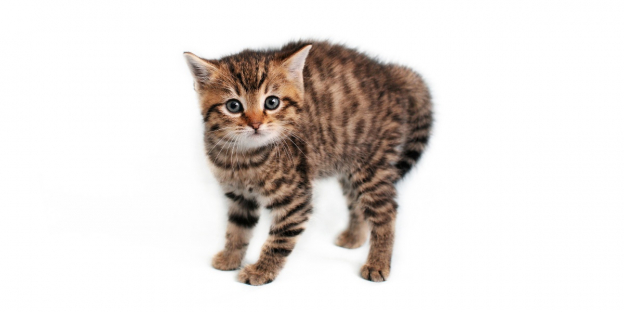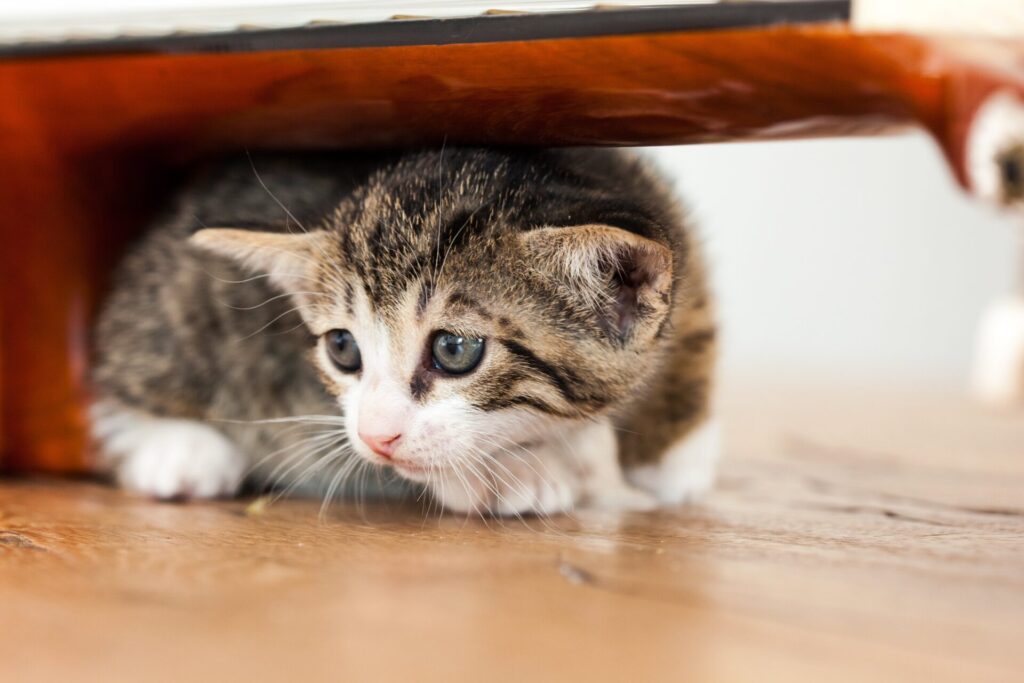Introducing a new kitten to your home can be an exciting and joyful experience. However, it’s not uncommon for kittens to experience fear and anxiety as they adjust to their new environment. Recognizing and managing these emotions through the best cat training practices is essential for ensuring a happy, well-adjusted pet.
Understanding Fear and Anxiety in Kittens
Kittens are naturally curious but can also be quite sensitive to new stimuli. Common triggers for fear and anxiety in kittens include:
- Loud noises
- New people or pets
- Unfamiliar environments
- Sudden movements
Recognizing the signs of fear and anxiety is the first step in addressing these issues. Symptoms may include hiding, excessive meowing, trembling, aggressive behavior, and loss of appetite.
Creating a Safe Space
One of the best cat training strategies for managing fear and anxiety in kittens is to provide a safe, secure space for your kitten. This area should be quiet, comfortable, and free from potential stressors. Include:
- A cozy bed or blanket
- Favorite toys
- A litter box
- Food and water bowls
Encourage your kitten to retreat to this safe space whenever they feel overwhelmed.
Gradual Exposure to New Experiences
Gradual exposure is a key component of the best cat training for kittens. Slowly introducing your kitten to new experiences can help build their confidence and reduce anxiety. Follow these steps for effective gradual exposure:
- Start Small: Begin with short, controlled exposures to new stimuli. For example, introduce your kitten to one room at a time.
- Use Positive Reinforcement: Reward your kitten with treats and praise for calm behavior during these exposures.
- Increase Duration and Intensity: Gradually increase the time and complexity of new experiences, ensuring your kitten remains comfortable.

Socialization with People and Pets
Socialization is crucial for reducing fear and anxiety in kittens. Proper socialization techniques, as part of the best cat training practices, include:
- Introducing New People: Allow your kitten to meet new people in a calm, controlled manner. Encourage visitors to offer treats and gentle petting.
- Meeting Other Pets: When introducing other pets, supervise initial interactions closely. Use a baby gate or crate to provide a safe barrier, and gradually increase direct contact as your kitten becomes more comfortable.
Desensitization Techniques
Desensitization is another effective method for managing fear and anxiety in kittens. This involves exposing your kitten to a specific trigger at a low intensity and gradually increasing exposure over time. Key steps include:
- Identify Triggers: Determine what causes your kitten’s fear or anxiety.
- Control Exposure: Begin with brief, non-threatening exposure to the trigger.
- Monitor Reactions: Observe your kitten’s behavior and adjust the intensity of exposure accordingly.
- Reward Calm Behavior: Use treats and praise to reinforce positive reactions.
The Role of Routine
Maintaining a consistent routine is vital in the best cat training for kittens. Predictable daily schedules for feeding, playtime, and rest help reduce anxiety by creating a sense of stability. Key aspects of a consistent routine include:
- Regular Meal Times: Feed your kitten at the same times each day.
- Scheduled Play Sessions: Engage in interactive play at regular intervals.
- Quiet Time: Ensure your kitten has quiet periods for rest and relaxation.
Professional Help
In some cases, professional help may be necessary to manage severe fear and anxiety in kittens. Consulting with a veterinarian or a certified animal behaviorist can provide additional guidance and support. They can offer specialized training techniques, behavior modification plans, and, if necessary, medical interventions.

Conclusion
Effectively managing fear and anxiety in kittens through the best cat training techniques is essential for fostering a healthy and happy pet. By understanding their triggers, creating a safe environment, and gradually exposing them to new experiences, you can help your kitten develop confidence and reduce anxiety. Consistent routines, socialization, and professional assistance when needed will further ensure your kitten thrives in their new home.
Implement these strategies to provide your kitten with the best start in life, promoting a strong bond and a joyful companionship.





















